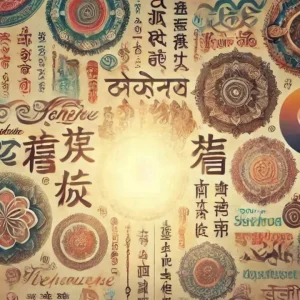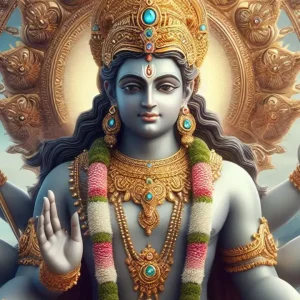Ancient Hindu scriptures hold timeless wisdom that can guide us toward true happiness and inner peace. Shlokas, sacred Sanskrit verses, offer powerful insights that can shape our mindset and uplift our spirit. By reflecting on these Hindu shlokas and applying their teachings, we can invite joy and fulfillment into our lives.
The Power of Hindu Shlokas in Daily Life
Shlokas are more than just poetic verses. They carry deep spiritual meanings that can transform our thoughts and emotions. Reciting these powerful words can calm the mind, reduce stress, and strengthen our inner resolve.
Incorporating shlokas into your daily routine can provide clarity during tough times. Whether recited during meditation, prayers, or moments of doubt, these verses remind us of life’s deeper purpose.
Hindu Shlokas for Happiness and Fulfillment
Below are some meaningful Hindu shlokas that offer guidance on finding joy and contentment.
1. Shloka on Gratitude and Contentment
“Santosha trishu kartavyah svadhare bhojane dhane |
Santoshaat trishu kartavyah swadhyaya tapo daya”
Meaning: Be content with your spouse, food, and wealth. Practice contentment in self-study, discipline, and compassion.
Application: This shloka teaches that true happiness comes from appreciating what we have. Instead of chasing endless desires, embracing gratitude leads to lasting peace.
A busy professional once found himself constantly dissatisfied despite career success. Practicing gratitude using this shloka shifted his focus from what was missing to what he already had. Over time, his stress reduced, and he found greater joy in everyday moments.
2. Shloka on Overcoming Worry
“Yatha deepo nivata-stho nengate sopama smrta |
Yogino yata-chittasya yunjato yogam atmanah”
Meaning: Just as a lamp does not flicker in a windless place, a focused mind remains steady in meditation.
Application: This verse from the Bhagavad Gita highlights the power of inner stillness. Practicing mindfulness or meditation daily can calm the mind and reduce worry.
A student preparing for competitive exams faced anxiety despite hours of study. By chanting this shloka during meditation, they learned to control their restless mind. This calmness improved their focus and exam performance.
3. Shloka on Letting Go of Control
“Karmanye vadhikaraste ma phaleshu kadachana |
Ma karma-phala-hetur bhur ma te sango’stv akarmani”
Meaning: You have the right to perform your duty but never to its fruits. Do not be attached to the outcome.
Application: This powerful verse teaches detachment from results. By focusing on efforts rather than worrying about outcomes, you can find peace and avoid frustration.
A small business owner struggled with anxiety over unpredictable profits. Embracing this shloka’s wisdom helped her shift focus to improving her work instead. Surprisingly, her mental peace increased, and her business flourished.
4. Shloka on Finding Inner Strength
“Uddhared atmanatmanam natmanam avasadayet |
Atmaiva hy atmano bandhur atmaiva ripur atmanah”
Meaning: Lift yourself by your own efforts; never give in to self-pity. You are your best friend or worst enemy.
Application: This verse emphasizes self-reliance and inner strength. Developing positive self-talk and belief in your abilities can improve confidence and well-being.
A woman recovering from personal loss recited this shloka daily. Over time, her self-doubt lessened, and she regained her strength to rebuild her life.
5. Shloka on Compassion and Service
“Paropakarartham idam shariram”
Meaning: This body is meant for serving others.
Application: Acts of kindness and service bring deep fulfillment. Helping others not only uplifts them but also nurtures your own inner joy.
A retired teacher began volunteering at a local orphanage. This act of service gave her life new purpose and brought unexpected happiness.
6. Shloka on Mind Control
“Manah shashthani indriyani prakritisthani karshati”
Meaning: The mind controls the senses, and mastering the mind leads to inner peace.
Application: Regular meditation, mindfulness, or yoga can strengthen your mind’s control. This practice helps reduce emotional turmoil and promotes calmness.
A corporate employee struggled with anger issues. Practicing this shloka alongside deep breathing exercises allowed him to manage stress better, improving both personal and professional relationships.
7. Shloka on Detachment from Desires
“Yada yada hi dharmasya glanir bhavati bharata |
Abhyutthanam adharmasya tadatmanam srijamy aham”
Meaning: Whenever unrighteousness rises, divine intervention restores balance.
Application: This shloka teaches patience and faith during difficult times. Trusting that challenges are temporary helps ease anxiety.
A struggling entrepreneur often doubted his path. By reflecting on this verse, he developed patience and resilience, eventually overcoming setbacks.
How to Incorporate Shlokas into Daily Life
To benefit from these teachings, consider these practical tips:
Morning Chanting: Start your day by reciting a meaningful shloka to set a positive tone.
Mindful Reflection: Repeat a chosen verse during meditation or quiet moments.
Journaling: Write a shloka each morning and reflect on its meaning.
Visual Reminders: Place shloka cards in your workspace or home for inspiration.
Family Practice: Teach children simple shlokas to nurture gratitude and compassion.
The Impact of Hindu Shlokas on Modern Life
People from all walks of life have found solace in these sacred verses. Hindu shlokas offer timeless wisdom that transcends cultural and social boundaries. Their teachings promote patience, self-belief, and acceptance — key qualities for lasting happiness.
Many have experienced reduced anxiety, improved focus, and a deeper sense of purpose by incorporating shlokas into their lives. Whether you are seeking peace, success, or fulfillment, these ancient verses can guide you forward.
Final Thoughts
True happiness often lies in adopting simple yet powerful practices. Hindu shlokas provide timeless wisdom that can calm the mind and nourish the soul. Choose a few that resonate with you and integrate them into your daily life.
Have you experienced the power of Hindu shlokas in your life? Share your thoughts and favorite verses in the comments below!





